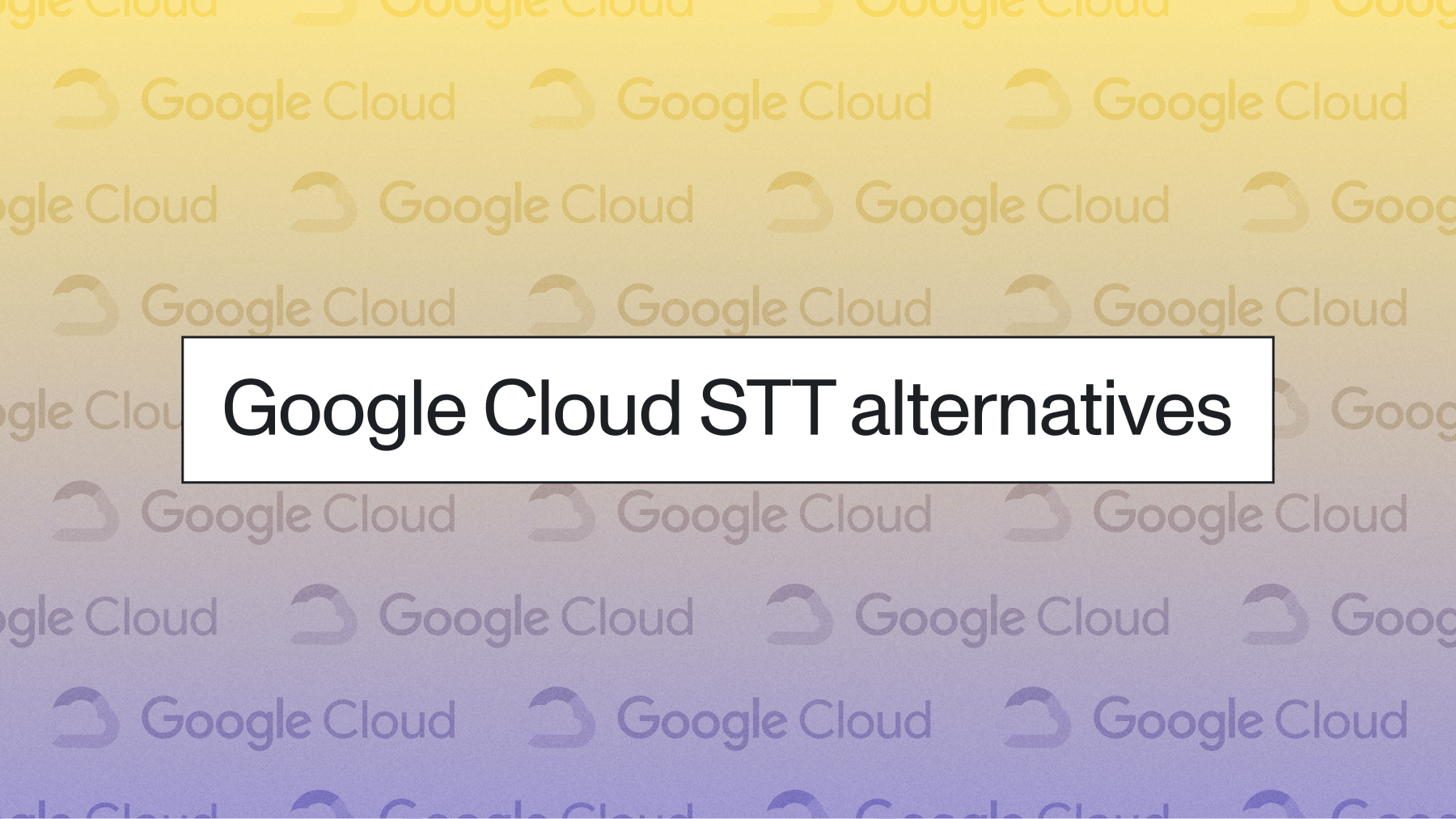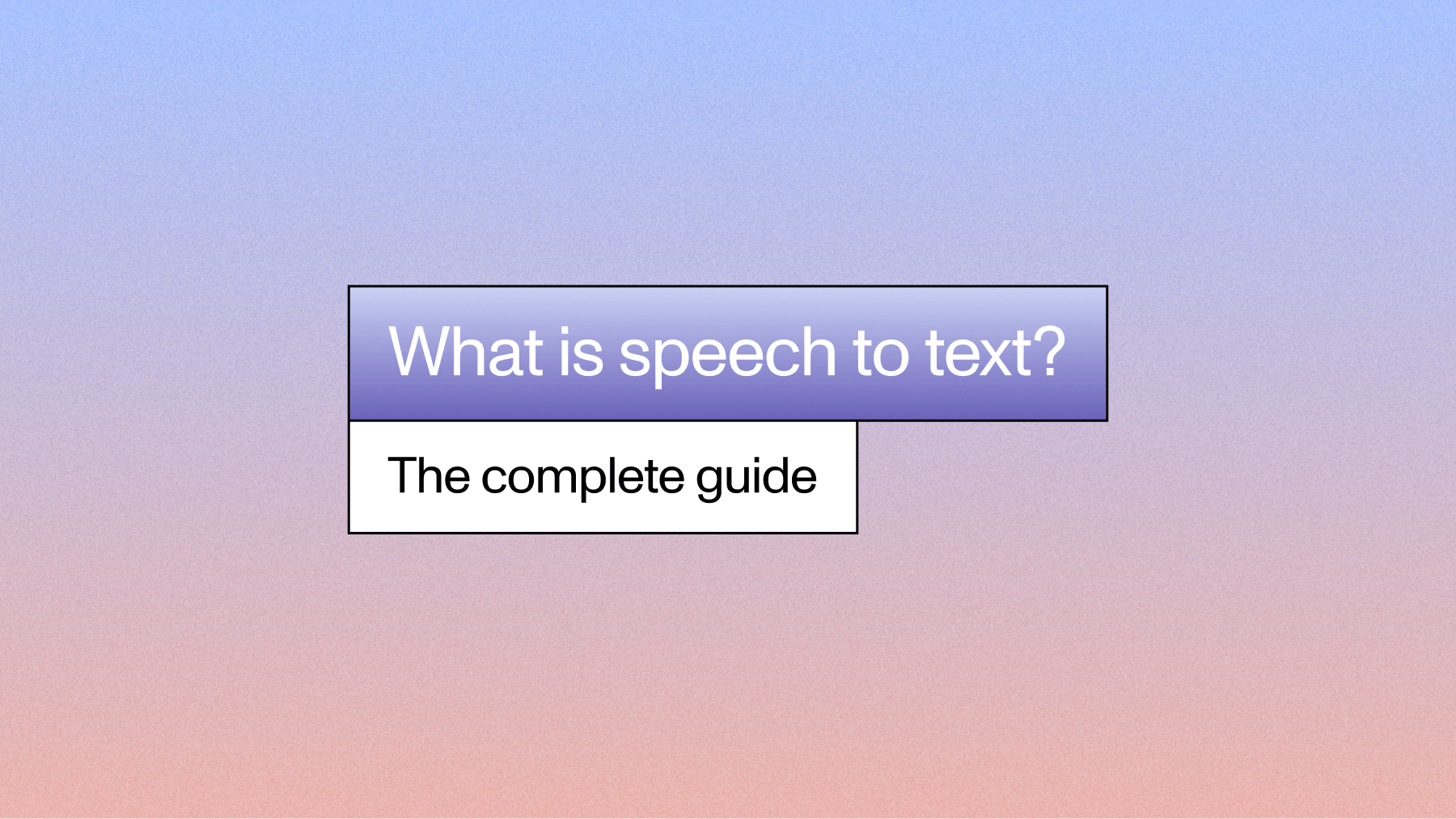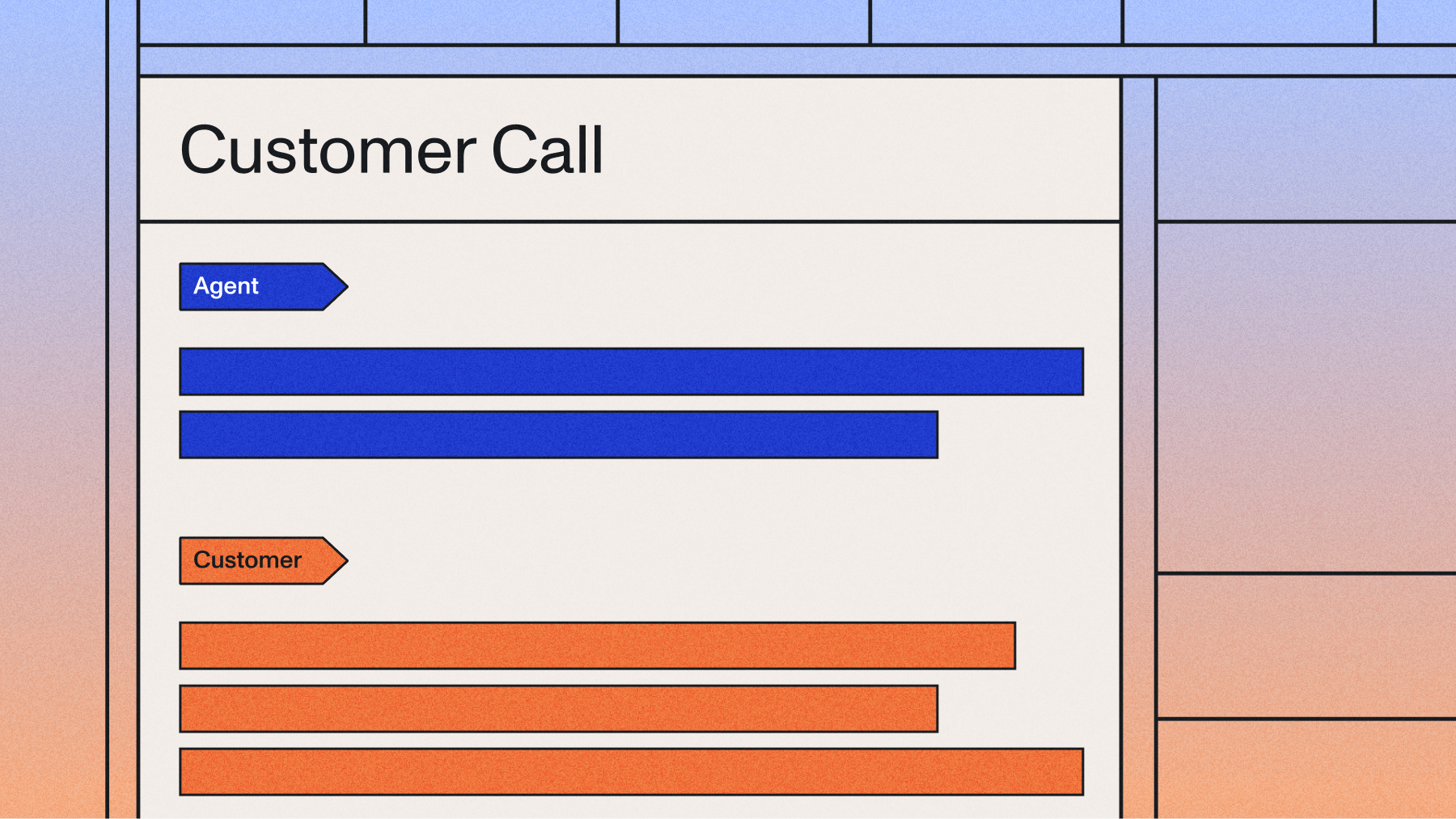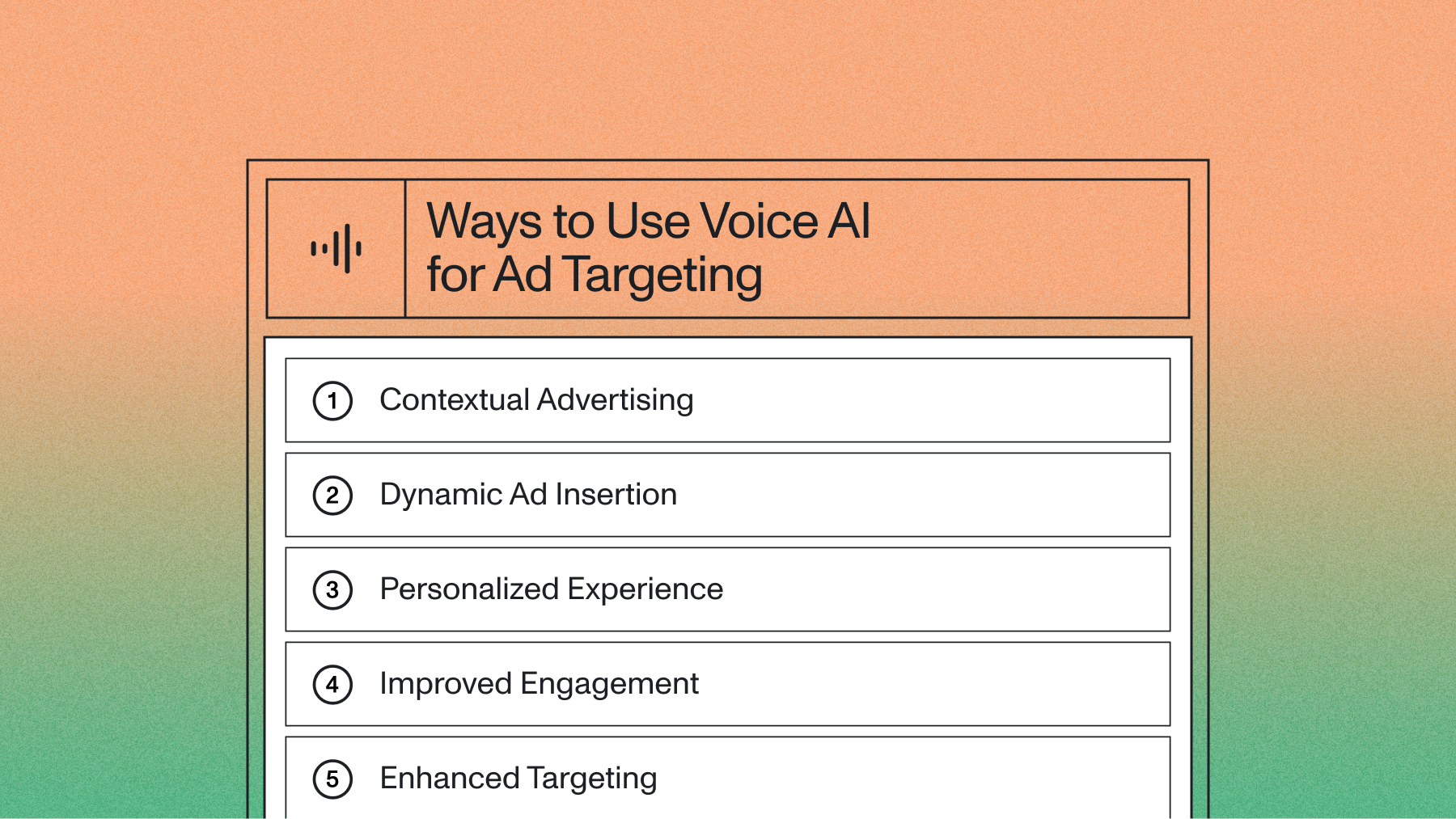5 Google Cloud Speech-to-Text alternatives in 2025
This guide compares the top five alternatives to Google Cloud Speech-to-Text with detailed pricing, performance benchmarks, and specific use case recommendations to help you choose the right speech-to-text solution for your application.



Google Cloud Speech-to-Text handles basic transcription, but developers increasingly need better accuracy, lower costs, or features Google doesn't offer like advanced speaker identification and real-time speech understanding in the rapidly growing speech recognition market.
This guide compares the top five alternatives—AssemblyAI, OpenAI Whisper, AWS Transcribe, Deepgram, and Microsoft Azure Speech Services—with detailed pricing, performance benchmarks, and specific use case recommendations to help you choose the right speech-to-text solution for your application.
Top Google Cloud Speech-to-Text alternatives comparison
The best alternatives to Google Cloud Speech-to-Text are AssemblyAI, OpenAI Whisper, AWS Transcribe, Deepgram, and Microsoft Azure Speech Services. Each offers different strengths—AssemblyAI delivers the highest accuracy with built-in speech understanding, Whisper provides open-source flexibility, AWS integrates seamlessly with existing Amazon infrastructure, Deepgram does well with uncomplicated transcription, and Azure works best within Microsoft ecosystems.
What to consider when choosing a Google Cloud Speech-to-Text alternative
Teams switch from Google Cloud Speech-to-Text when they need better accuracy, lower costs, or features Google doesn't offer, reflecting broader trends in enterprise AI adoption. Your choice depends on whether you prioritize accuracy, speed, cost, or specific capabilities like sentiment analysis.
Accuracy and performance
Word Error Rate (WER) is how speech recognition accuracy gets measured. A 5% WER correctly transcribes 95 out of 100 words. Lower WER percentages indicate better performance, and even small improvements matter when you're processing thousands of hours of audio.
Modern AI models use Conformer architectures to understand context across entire sentences. This approach beats older word-by-word processing methods, especially with accented speech or technical terminology.
Key performance factors to evaluate:
- WER benchmarks: Test on your specific audio types like meetings or phone calls
- Processing speed: Real-time applications need sub-second latency
- Consistency: Models should perform well across different speakers and environments
Developer experience and documentation
API design determines how quickly you'll get to production. You want clear documentation, working code examples, and SDKs in your programming language. Migration guides become crucial when switching from Google Cloud—look for providers with specific Google-to-alternative documentation.
The best APIs return comprehensive responses with timestamps, confidence scores, and speaker labels without extra configuration. AssemblyAI's documentation stands out with Ease of Setup rated 8.9 on G2 and developers reporting production-ready implementations within hours rather than days. Interactive code examples, migration guides, and responsive support teams address integration challenges quickly. WebSocket implementations should handle streaming audio smoothly with proper error handling.
Pricing and scalability
Speech-to-text pricing ranges from $0.004 to $2.00 per minute depending on features and volume. Pay-as-you-go works for variable workloads, while committed use discounts can cut costs significantly for predictable volumes.
Consider total cost beyond per-minute rates. Poor accuracy increases manual correction costs, and complex APIs require more developer time.
5 best alternatives to Google Cloud Speech-to-Text
1. AssemblyAI
AssemblyAI is a Speech AI platform that delivers industry-leading transcription accuracy through a single API. You get transcription, speaker identification, sentiment analysis, and content insights through a unified interface without managing multiple services.
The Universal model handles batch processing while the Streaming model processes real-time audio with minimal delay. Unlike Google's separate APIs for different features, AssemblyAI includes Speech Understanding capabilities in one unified interface.
You'll find AssemblyAI consistently outperforms Google Cloud on challenging audio like accented speech, technical terminology, and noisy environments. The platform can identify a customizable number of speakers in a single recording and automatically detects languages across 90+ options. Developers report transcription accuracy improvements of up to 23% when switching from other providers, with particularly strong performance on multi-speaker environments, accented speech, and noisy audio.
Core capabilities include:
- Real-time streaming: WebSocket API with sub-300ms latency
- Speaker diarization: Identifies who said what in conversations
- PII redaction: Automatically removes sensitive information for compliance
- LLM gateway framework: Applies LLMs for summarization and question-answering
- Custom vocabulary: Improves accuracy on industry-specific terms
AssemblyAI's documentation stands out with interactive code examples and migration guides. Developers report getting to production in under an hour when switching from Google Cloud.
Pricing for the Universal model starts at $0.15/hr. New users get $50 in free credits—enough to transcribe over 300 hours of audio.
2. OpenAI Whisper
OpenAI Whisper is an open-source speech recognition model you can run on your own servers. Self-hosting provides complete data privacy with no per-minute costs after initial infrastructure setup.
Whisper was trained on 680,000 hours of multilingual data and handles 99 languages without language-specific configuration. The largest model achieves impressive accuracy but requires significant computing resources—10GB of VRAM and processes audio slower than real-time.
Self-hosting Whisper requires technical expertise to manage GPU servers, implement queuing systems, and handle model updates. Many teams find the infrastructure overhead costs more than using hosted alternatives.
OpenAI also offers Whisper through their API at $0.006 per minute—the lowest commercial rate available. However, the API lacks real-time streaming, speaker identification, and word-level timestamps.
Choose Whisper when you need:
- Complete data privacy with self-hosting
- Batch processing without time constraints
- Multilingual support for uncommon languages
- The lowest possible per-minute costs
3. AWS Transcribe
AWS Transcribe integrates directly with Amazon's cloud services, triggering Lambda functions on completion and storing outputs in S3—simplifying security compliance and eliminating data transfer costs if your infrastructure already runs on AWS.
The service includes specialized models for medical transcription and call center analytics with industry-specific vocabulary. Custom vocabulary and speaker identification come standard, though the 10-speaker limit restricts some meeting transcription use cases.
AWS Transcribe performs well on clear recordings but struggles with background noise and overlapping speakers. The medical and call analytics models show improvement in their specific domains.
Pricing starts at $0.024 per minute for batch transcription and $0.030 for streaming. AWS Free Tier includes 60 minutes monthly for the first year.
4. Deepgram
Deepgram does well on uncomplicated audio but its model can struggle with real-world audio that has background noise and overlapping speakers
The platform processes multiple audio streams simultaneously, with a cost upgrade, and maintains good accuracy on conversational speech.
Deepgram includes profanity filtering, number formatting, and smart punctuation in its base tier. Their WebSocket API supports dozens of concurrent connections for high-volume streaming applications.
Pricing starts at $0.0043 per minute and enhanced tiers with speaker identification and additional languages increase costs but remain competitive.
5. Microsoft Azure Speech Services
Microsoft Azure Speech Services provides voice capabilities within Microsoft's ecosystem—transcription, text-to-speech, translation, and speaker recognition—with seamless integration with Active Directory, Teams, and Office 365.
Custom Speech models can be trained on your specific audio data and terminology for improved domain accuracy. The Speech SDK supports extensive customization but requires more complex implementation than simpler REST APIs.
Real-time transcription works well for single speakers but struggles with overlapping speech. Batch transcription handles large volumes efficiently with automatic scaling.
Pricing follows an hourly model—$1.00 for standard recognition, $2.00 for real-time streaming. The free tier provides 5 hours monthly.
Pricing comparison of Google Cloud Speech-to-Text alternatives
True costs go beyond headline per-minute rates — accuracy differences might mean spending more on manual corrections with cheaper options.
Hidden costs to consider:
- Accuracy impact: Poor transcription quality increases correction time
- Integration complexity: Some APIs require more development work
- Feature limitations: Basic tiers might lack essential capabilities
Which Google Cloud Speech-to-Text alternative is right for you
Your choice depends on your specific requirements and existing infrastructure. Common use cases include meeting transcription with speaker identification, podcast processing for content creation, call center analytics with sentiment analysis, voice assistant integration requiring low latency, and medical dictation with compliance requirements.
For real-time applications: AssemblyAI's Streaming model balances speed with superior accuracy. AWS Transcribe and Azure work for basic streaming but add noticeable delay.
For highest accuracy requirements: AssemblyAI consistently achieves the best results across diverse audio types. Legal, medical, and financial applications benefit from specialized models and compliance certifications.
For cost optimization: OpenAI Whisper API offers the lowest per-minute rate and self-hosted Whisper eliminates per-minute costs entirely but requires infrastructure investment.
Why AssemblyAI is the leading Google Cloud Speech alternative
AssemblyAI achieves consistently higher accuracy than Google Cloud Speech-to-Text across standard benchmarks and real-world audio. This accuracy advantage comes from training on diverse, challenging audio rather than clean laboratory datasets.
The unified API design means you implement once and access all features—transcription, timestamps, speakers, sentiment, summaries—without managing multiple services. Migration from Google Cloud typically takes 30-60 minutes using provided migration guides and code converters.
Independent reviewers on G2 rate AssemblyAI at 4.8 out of 5 stars, with Quality of Support scoring 9.6—significantly higher than industry averages. Developers highlight implementation speeds of under an hour and cite the platform's intuitive interface, comprehensive documentation, and responsive support as key differentiators.
Companies switching to AssemblyAI report significant improvements in transcription quality, especially on accented English and technical terminology. The platform automatically scales to handle millions of minutes daily while maintaining consistent processing speeds.
Enterprise customers benefit from SOC 2 Type 2 certification, HIPAA compliance with Business Associate Agreements, and uptime guarantees. AssemblyAI's infrastructure handles traffic spikes without degradation.
Lorem ipsum dolor sit amet, consectetur adipiscing elit, sed do eiusmod tempor incididunt ut labore et dolore magna aliqua. Ut enim ad minim veniam, quis nostrud exercitation ullamco laboris nisi ut aliquip ex ea commodo consequat. Duis aute irure dolor in reprehenderit in voluptate velit esse cillum dolore eu fugiat nulla pariatur.



